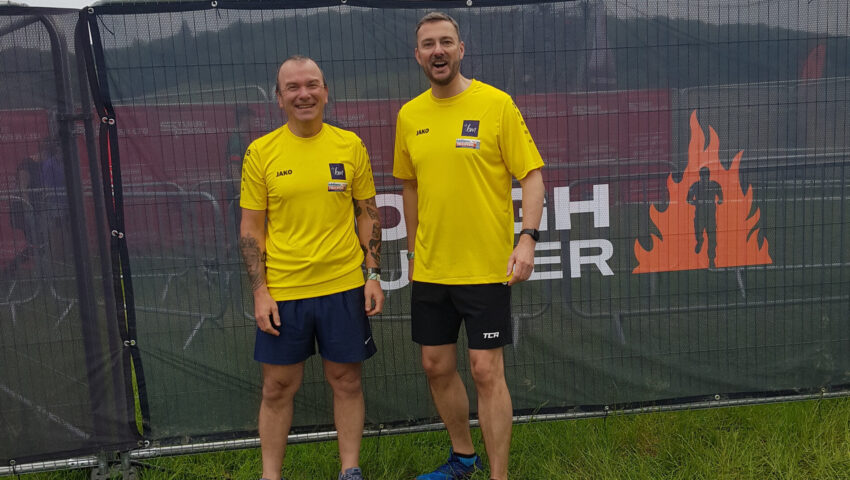Blogs
Taking Care of You

This Men’s Health Week, we asked Antony Prentice, joint Managing Director, and Andrew Petford, Operations Director, about their approaches to maintaining physical and mental wellbeing amidst their busy professional and personal lives. They both highlighted how structured routines and self-care can lead to a healthier, more balanced life.
Balancing Work and Personal Life
Antony: The key to managing stress, whether from work or family, is to be as structured as possible. I’m a big list maker and diary planner. I prioritise tasks, ensuring enough time for urgent and important things. However, I have learned that I also need thinking/reflecting time and recovery/rest time. Where possible, I try to map out some “me time” to do things I enjoy as well as the things I must do. I also use any alone time as an opportunity to recharge my batteries.
Diet and Exercise
Antony: I’m a big walker and use walking not only for exercise but also as an opportunity to think. I love keeping physically fit and schedule several gym classes like HIIT training, Boxfit, and circuit training during the week. The key for me is to put the classes in the diary, committing time to attend them just as I would for a meeting. I try to keep my diet quite balanced. Although I indulge in comfort and treat foods occasionally, I try to avoid ultra-processed foods as much as possible.
Andrew: I have discovered cycling which gives me the time to think and process those thoughts. I can be more present when at work and with family, allowing me to contribute more to those parts of my life. On top of this, I encourage (although some may say coerce) friends and colleagues to join me in charity sports events. Past events include: Wolf Run, Tough Mudder, and The London to Brighton Bike Ride.
Mental Wellbeing
Antony: Consciously allowing myself sufficient opportunity for a good night’s sleep is crucial. I don’t always sleep as well as I would like, but reading Matthew Walker’s book “Why We Sleep” a few years ago changed my attitude towards sleep. I now see it as a key pillar of both physical and mental health. Two key tips from his book are to allow yourself an opportunity to sleep (scheduling again!) and to maintain a regular sleep pattern routine.
Andrew: I used to be terrible at looking after my mental wellbeing. I would always put others before myself, both at home and at work. The remedy for me was actually quite simple and didn’t cost a penny. I became disciplined in setting aside time for myself every single day. Now I use that time to exercise, read a book, or just do something I’d like to do.
Breaking the Silence
Antony: I can see a definite generational change around men discussing their health concerns. Some men still tend to bottle things up and aren’t always confident in sharing personal concerns. They might fear being perceived as weak or “worrying about nothing.” Younger men, like my 20-year-old nephew, show more concern for exercise, good diet, and self-care than I did at his age. This base-level concern with personal wellbeing among many young men will likely lead to more open conversations over time.
Andrew: After recently being very ill, I am more aware of the stigma than ever before. My generation was raised in an environment where physical and mental health issues were never discussed. Every day, I battle the ingrained belief that talking about my feelings or health concerns is a sign of weakness. I am learning to accept that sharing with others is powerful and healthy.
How Society Can Help Men Take Better Care of Their Health
Both: The younger generation is often better educated in personal health and wellbeing than previous generations. Education within schools, from parents, and public role models can still be improved. Initiatives, such as Men’s Health Week, that focus on prevention rather than cure within healthcare would be beneficial. Ultimately, we believe there should be more emphasis on personal responsibility for health to improve across society, including for men.





